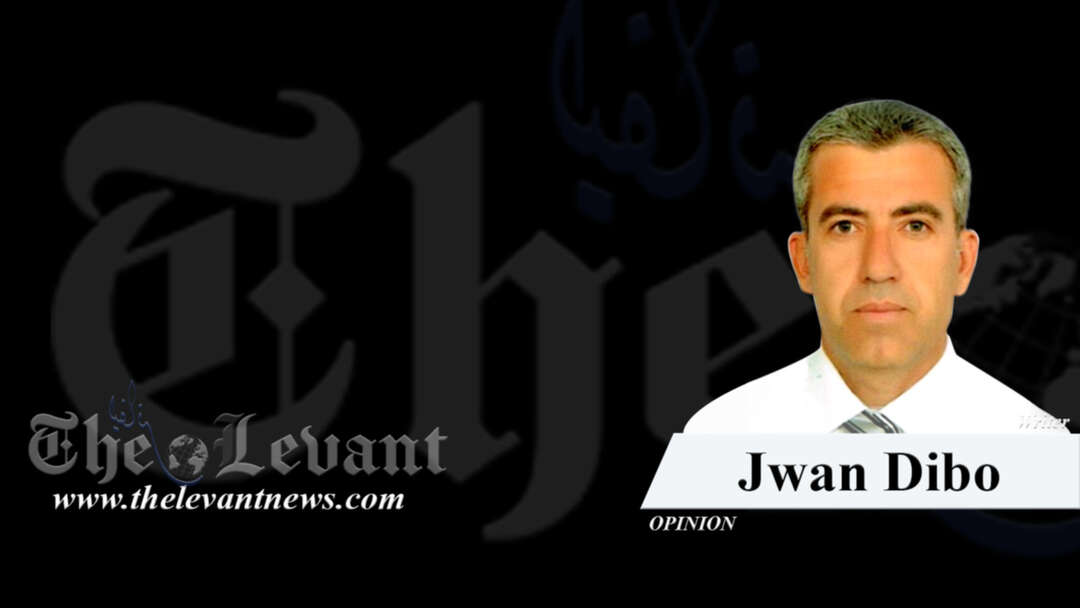-
What Does it Mean for Turkey to Lose Idlib In the North-Western Syria?

By: Jwan Dibo
What is going on in Idlib, the city in north-western Syria, is considered as one of the hardest tests for Turkey throughout the Syrian predicament. If Turkey fails in the experiment of Idlib and if the Syrian regime succeeds in regaining it, of course, with the aid of Russia and Iran, then, the future of the odious Turkish occupation of the rest of the Syrian regions including Kurdish ones, will be at stake. Consequently, this likelihood, in case it becomes a reality, can be deemed as the beginning of the end of the devastating Turkish role in Syria and in the entire region of the Middle East and North Africa.
Turkish concern does not hover over the fate of Idlib, which is bound to fall in favour of the Syrian regime sooner rather than later. But the reason for Turkey's obsession is what awaits the future of its occupation of the rest of the Syrian lands that Ankara has devoured during the military operations, which falsely called as "Euphrates Shield", "Olive Branch" and "Peace Spring", in the case of the collapse of Idlib.
Turkey is apprehensive about, firstly, the flow of new waves of refugees into its territory. Secondly, the fate of its tools, namely, the armed terrorist groups including Al-Nusra Front or Jabhat al-Nusra, known as Jabhat Fatah al-Sham. These terrorist groups are considered as the military wing of pro-Turkey 'The National Coalition for Syrian Revolution and Opposition Forces'. These extremist factions have become Turkey's beating hand inside and outside Syria. The Libyan example is the best evidence which demonstrates the authenticity of this deduction. These radical militias have empowered Turkey to roam and occupy various Syrian areas and to commit numerous massacres, in particular, against Kurds in Afrin and other Kurdish cities and towns in the east of Euphrates.
In other words, Turkey is racing against time due to the unknown destiny that awaits its tools from the massive accumulated terrorist stockpile in Idlib. This huge terrorist reservoir has been used by Turkey in carrying out its malicious and subversive plans in Syria, Libya and the whole region. Even, Turkey blackmails the European Union, from time to time, with the flow of new waves of Syrian refugees towards Europe. Therefore, it is likely that, nowadays, Turkey's negotiations with Russia are regarding the post-Idlib phase that will plummet soon in the benefit of Al-Assad regime. Any delay that may occur in the Russian plan to retrieve Idlib will be resulted by examining future arrangements and studying Turkish proposals in this regard.
According to a few reports and analyses, Turkish plan suggests transferring pro-Turkey terrorists in Idlib with their families to a buffer zone within the Syrian territories and along the Turkish - Syrian border with European funding and Turkish supervision and control. Erdogan's Turkey strives to blackmail Europe, especially Germany on the issue of Syrian refugees which means the flow of new waves of Syrian refugees towards the old continent in order to compel EU to fund Ankara's project to transfer millions from Idlib and resettle them in that safe zone. The Turkish proposal, in case it turns into a fact, it will generate catastrophic implications in terms of demographic changes against the Kurds in Syria and in favour of proponents of radical political Islam.
Most data and facts on the ground indicate that Turkey will lose the test of Idlib in the foreseeable future. It is very difficult for Turkey to jeopardise its privileged relations with Russia only for Idlib. The same rule applies to Russia, which will attempt very quickly to reach a compromise over Idlib stalemate that should be satisfactory to both parties and takes Turkish concerns and caveats into consideration. But Idlib will return to the control of the Syrian regime during the current year but no more than that.
NATO will not practically interfere in Idlib dispute in the benefit of Turkey and its reaction will be limited to statements and verbal solidarity. The reason behind NATO’s stance is because the relationships between Turkey, which is a member of NATO, and the rest European members plus the United States are not quite well. The causes that have led to the deterioration of those relations are still in place and even they are escalating. For example, S-400 missile deal between Turkey and Russia, gas exploration by Turkey in the territorial water of Cyprus and Greece and other issues.
Erdogan, as usual, will initially oppose Putin's strenuous efforts to restore Idlib in favour of al-Assad regime. But at the end, the Sultan will acquiesce to the will of the Tsar. This is how history speaks, and thus the present says, and on this basis the future will be formulated.
You May Also Like
Popular Posts
Caricature
BENEFIT Sponsors BuildHer...
- April 23, 2025
BENEFIT, the Kingdom’s innovator and leading company in Fintech and electronic financial transactions service, has sponsored the BuildHer CityHack 2025 Hackathon, a two-day event spearheaded by the College of Engineering and Technology at the Royal University for Women (RUW).
Aimed at secondary school students, the event brought together a distinguished group of academic professionals and technology experts to mentor and inspire young participants.
More than 100 high school students from across the Kingdom of Bahrain took part in the hackathon, which featured an intensive programme of training workshops and hands-on sessions. These activities were tailored to enhance participants’ critical thinking, collaborative problem-solving, and team-building capabilities, while also encouraging the development of practical and sustainable solutions to contemporary challenges using modern technological tools.
BENEFIT’s Chief Executive Mr. Abdulwahed AlJanahi, commented: “Our support for this educational hackathon reflects our long-term strategic vision to nurture the talents of emerging national youth and empower the next generation of accomplished female leaders in technology. By fostering creativity and innovation, we aim to contribute meaningfully to Bahrain’s comprehensive development goals and align with the aspirations outlined in the Kingdom’s Vision 2030—an ambition in which BENEFIT plays a central role.”
Professor Riyadh Yousif Hamzah, President of the Royal University for Women, commented: “This initiative reflects our commitment to advancing women in STEM fields. We're cultivating a generation of creative, solution-driven female leaders who will drive national development. Our partnership with BENEFIT exemplifies the powerful synergy between academia and private sector in supporting educational innovation.”
Hanan Abdulla Hasan, Senior Manager, PR & Communication at BENEFIT, said: “We are honoured to collaborate with RUW in supporting this remarkable technology-focused event. It highlights our commitment to social responsibility, and our ongoing efforts to enhance the digital and innovation capabilities of young Bahraini women and foster their ability to harness technological tools in the service of a smarter, more sustainable future.”
For his part, Dr. Humam ElAgha, Acting Dean of the College of Engineering and Technology at the University, said: “BuildHer CityHack 2025 embodies our hands-on approach to education. By tackling real-world problems through creative thinking and sustainable solutions, we're preparing women to thrive in the knowledge economy – a cornerstone of the University's vision.”
opinion
Report
ads
Newsletter
Subscribe to our mailing list to get the new updates!






















